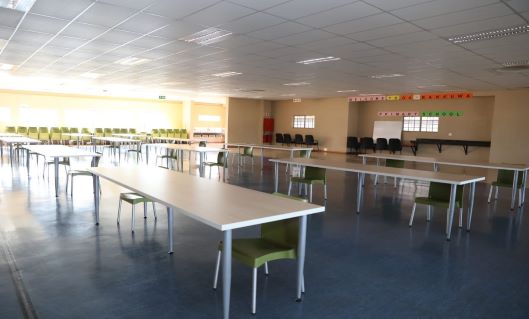Office of the Premier 2021/06/16 - 22:00

Thembisa Shologu
Department of Education has set aside a budget of R53,4 billion with the biggest chunk (75%) of the total budget allocated to the compensation of employees.
Tabling the Department's 2021/22 budget on Thursday, 17 June, MEC Panyaza Lesufi said the budget has been structured not only to respond to learning during the CVID-19 pandemic but also to reposition the system to be more resilient under any circumstances.
"Despite the budget declining by 0.3% or R135 million, from R53,5 billion in 2020/21 to R53,4 billion in 2021/22, we do see the budget growing marginally, over the MTEF, at an average rate of 2.5%.
"This reflects a decrease of 3,85 % or R1,5 billion from last year, this decrease is due to no provision for salary increases. In addition, R6,1 billion or 11% is allocated to Transfers and Subsidies mainly for subsidies to schools, an increase of over R900 million and R1,5 billion or 3% which is allocated to pay for capital assets," said MEC Lesufi.
Currently, the Department is preparing for the migration of the Early Childhood Development (ECD) function from Social Development to Education with effect from 01 April 2022, including the concomitant resources in accordance with Rule 32 of Public Service Regulation.
"To further improve the quality of Grade R teaching, all Grade R practitioners are required to acquire a qualification and skills.
In the 2021/22 financial year, the Department aims to register 500 practitioners for a Bachelor of Education Degree and Diploma in Grade R teaching, and 150 practitioners for a Higher Certificate in Education which is a bridging module," he said.
The Department services 1 409 no-fee schools with approximately 1 502 000 learners in the current financial year.
"The national threshold for no-fee schools has been increased to R1 466 per learner, thus increasing subsidies to Public Ordinary schools to R2.3 billion in 2021/22. The Department has allocated R87.3 million for school fee exemptions for the 2021/22 financial year," Lesufi said.
MEC Lesufi said one of the department's challenges in the period ahead is the state of school infrastructure.
"Township schools have had to accommodate learners above their capacity, including the use of specialist rooms, due to their proximity to informal and new settlements.
"Suburban schools have also reached their capacity as a result of the growth of black middle class in existing and new middle-income housing areas. The number of schools built per year is not meeting demand and annually there is a growing backlog of new infrastructure," added the MEC.
RELATED NEWS
No related news

